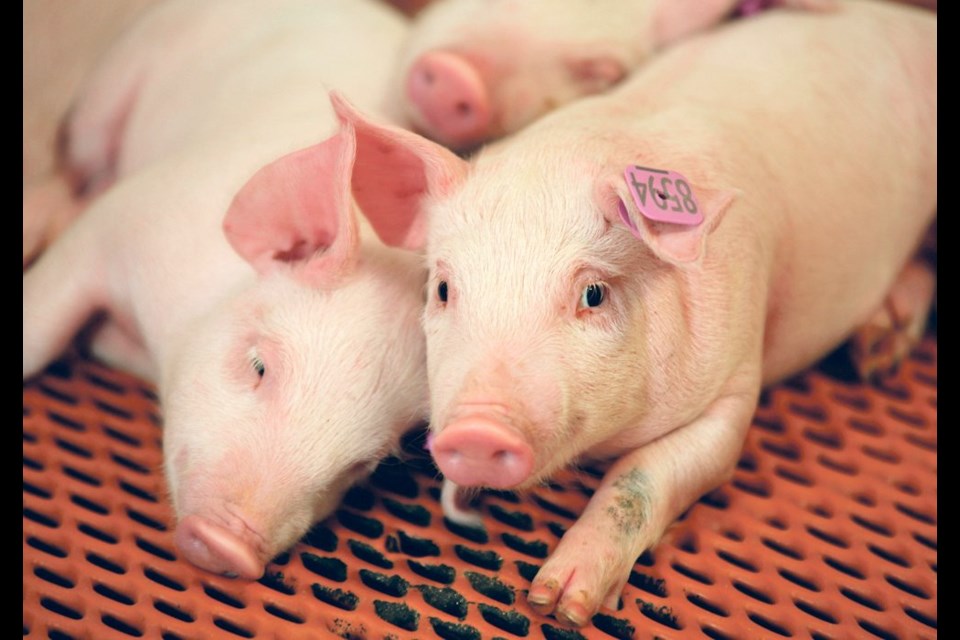The provincial government and Sask Pork are contributing $1 million to Moose Jaw’s sow processing plant to help the venue better prepare for an African swine fever outbreak.
The Ministry of Agriculture contributed $700,000 to support swine disease mitigation efforts, while Sask Pork gave $300,000 toward a swine market disruption plan. This plan is expected to help the industry respond to potential market closures due to an animal health emergency such as African swine fever (ASF).
This type of fever is a viral disease that only affects pigs and, to date, has never been detected in Canada.
In particular, the funding will help North 49 Foods – the company that will manage the plant – create a cull line inside the venue to allow for “humane slaughter of domestic hogs if a serious swine disease outbreak ever temporarily stopped trade,” the province said.
Culled sows are older female animals and may experience lower productivity due to their age.
“Ensuring Saskatchewan’s pork industry is positioned to respond to a potential market disruption and safeguard animal welfare is key to the continued success of the sector,” North 49 Foods’ CEO Allan Leung said. “We are pleased to play a role in this important plan.”
Donald’s Fine Foods (DFF) – the parent company of North 49 Foods and operator of Thunder Creek Pork Plant – has been talking with the province and Sask Pork about this issue for more than a year, Neil Ketilson, industry relations manager for Donald’s Fine Foods, told the Moose Jaw Express by phone. Both parties know that ASF is “an incredibly difficult disease and could create all kinds of havoc.”
When DFF began renovating the former XL Beef Plant and constructing new additions, the province approached the company wondering if it would incorporate a cull line, which it agreed to do, he continued.
Pigs that are euthanized because of African swine fever would likely not enter the food supply chain, Ketilson said. However, work is still happening on this issue, “so that’s an open question.”
“African swine fever is a disease that, if Canada gets one case anywhere in the country, none of the existing packers would be able to export any pork outside our borders; they’d be closed,” he continued.
Since Canada exports 70 per cent of its beef products, an outbreak of ASF would immediately have a major effect on the industry, from producers to packers, Ketilson added. There are many animals in the production pipeline at various stages of growth, so the industry would have to determine what to do with them if the market closed.
Meanwhile, construction at the sow processing plant continues and “is a work in progress,” Ketilson said. The company has no firm deadline for when it plans to open the venue because it is having trouble finding certain equipment, preventing the installation of those items.
“So we’re at the mercy of that equipment getting here and being able to put in place and get the plant operational … ,” he added. “Certainly, we’re hoping for this spring or second quarter (to open).”
The British Columbia-based company purchased the former beef plant in May 2020, and in June 2021, took out a building permit of $12.7 million to convert the venue located on 24th Avenue Northwest. That conversion work began in August 2021.
The XL Beef plant closed in 2010 when the company shut down rather than meet the demands of 200 striking workers.




